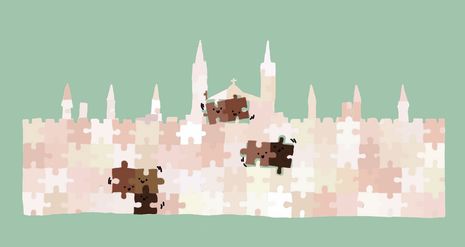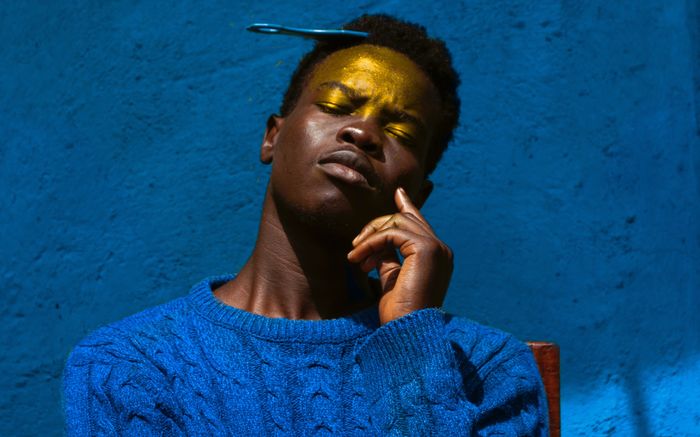What ‘the nod’ means for Cambridge’s black students
Nodding is more than just a gesture, according to Ayomide Akande. In this insightful piece, he breaks down the cultural significance of ‘the nod’ for black communities in spaces where they are the minority

I remember how I first met two of my closest friends at Cambridge. We all partook in a joint bridging course for our colleges; I sat by myself, not knowing anyone else in the lecture theatre as we waited for the rest of the participants. When these two black boys walked in, I immediately made eye contact with one of them, and we both nodded at each other before they went to sit with their group. Once the talk was done, we met at the bottom of the theatre and within minutes we were laughing like we had been friends for years. I always found it interesting that without saying a word to one another, our friendship had started from that initial silent recognition of one another as being the same through our black heritage and sharing a unique position as a minority in such a prestigious institution.
“Why would I subconsciously assume they were out of touch with their blackness?”
It’s not just a nod. As a black man, I have first-hand experience of the nod. I’m not merely talking about the associated gesture, but more so the symbolism behind it. For me, the act of walking in the street, making eye contact with a fellow member of the black community and nodding, smiling, or simply showing a small gesture of solidarity was a normal part of life. Indeed, it was something I paid no mind to initially — until I reflected upon it. Why do I nod or smile at other black members occupying the same space, and why do I expect them to smile or nod back? And why would I subconsciously assume they were out of touch with their blackness when they didn’t return the gesture, or even wilfully ignored it?
Growing up in Southeast London, I was used to being in racially diverse settings. At the same time, my experience in a grammar school gave me some prior experience of being a minority in spaces, and it was there I learned how black people tend to cluster and stick together. Upon reflection, I realised that all my closest friends were black boys with similar interests to me. I found myself wondering if I would have had the same friendship group if our school had a greater black population. When I arrived at university, I found that old habits die hard and that once again, most of my close connections were with black students with similar interests. While I had not consciously and deliberately chosen to be friends with people of similar backgrounds, it was a factor that inevitably played a factor in my university experience.
“This community requires nothing more than a shared racial identity within what is traditionally an elitist, white space, to exist and flourish”
Admittedly, this is a phenomenon that I have experienced more so with black men such as myself, yet with other black members of society, there is a level of recognition, nonetheless. This was not something I witnessed as much during the 18 and a half or so years that I lived in Southeast London, as there were fewer moments where I found myself in white-dominated spaces. It was something I only noticed once I came to Cambridge. Nevertheless, in those few instances where I did find myself in a similar position, I always instinctively looked for and approached the other black members of that space in order to form a connection. I found my efforts were always returned with equal energy.
So why? Why does this happen? For me, it is indicative of an empirical sense of community, established through our shared heritage and resultant experiences and struggles. As black people in an institution where we make up one of the greatest racial minorities, it is important and significant to see people who look like us around town, to remind and reassure us of our capabilities and fend off imposter syndrome. Even before I had applied to Cambridge, my biggest concern was not the academic pressures, but whether I would be able to find those I could relate to on a deeper level. I was worried I wouldn’t find “my people”.
Luckily for me, I was able to discover this community through the Afro-Caribbean society, the study of my subject and random encounters on the street or in social spaces. And while the ensuing friendships and connections I have made have been strengthened through the similar passions I share with people and the good memories we have made, all of this is rooted in the foundation of our shared blackness. More specifically, this community requires nothing more than a shared racial identity within what is traditionally an elitist, white space, to exist and flourish.
Ultimately, what does “The Nod” signify? A mutual understanding that “We made it”. We made it to one of the best universities in the world. For us, Cambridge is not simply a university education, it is an opportunity to finally steer the pathways of our families and communities in another direction. Not only does it reflect this message, but also the message that our presence here will encourage future generations of black students to apply and study here until we are no longer considered a minority, but rather normality.
 News / Cambridge academics stand out in King’s 2026 Honours List2 January 2026
News / Cambridge academics stand out in King’s 2026 Honours List2 January 2026 Interviews / You don’t need to peak at Cambridge, says Robin Harding31 December 2025
Interviews / You don’t need to peak at Cambridge, says Robin Harding31 December 2025 Comment / What happened to men at Cambridge?31 December 2025
Comment / What happened to men at Cambridge?31 December 2025 News / Varsity’s biggest stories of 202531 December 2025
News / Varsity’s biggest stories of 202531 December 2025 Features / “It’s a momentary expression of rage”: reforming democracy from Cambridge4 January 2026
Features / “It’s a momentary expression of rage”: reforming democracy from Cambridge4 January 2026










